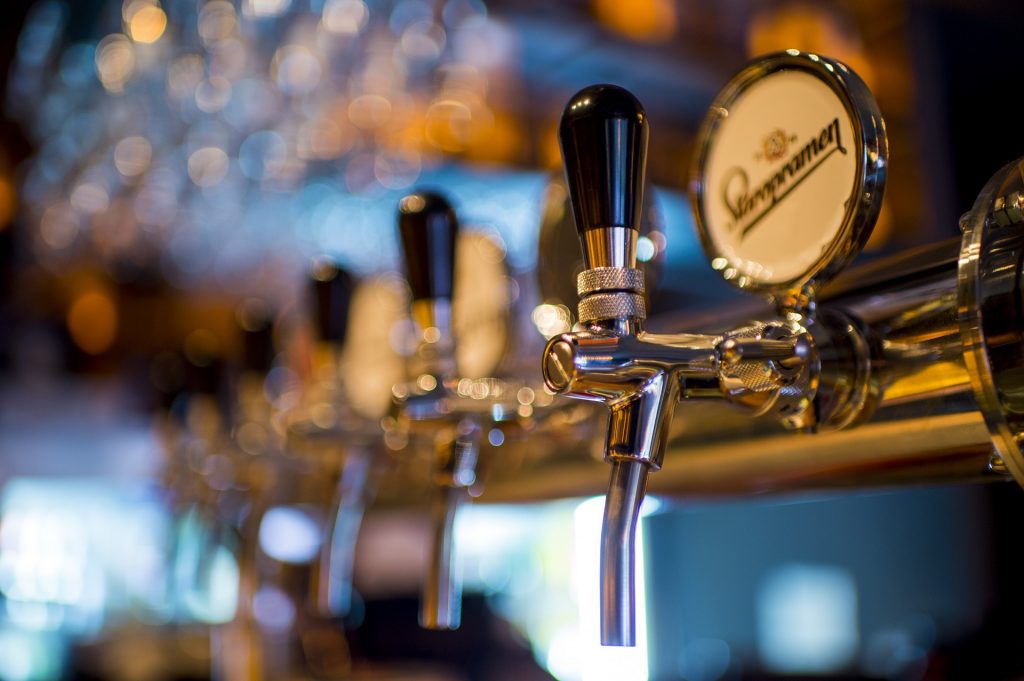 From Mission Beach, to Gaslamp, to the several hipster bars tucked away in cool neighborhoods throughout San Diego, enjoying a craft brew or an expertly made cocktail with friends is something of a pastime in our fair city. And with the accessibility in recent years of Uber and Lyft, drunk driving and DUI arrests have gone down significantly. But unfortunately, they’ve not been eliminated from our society, and bad things can happen when people drink and drive.
From Mission Beach, to Gaslamp, to the several hipster bars tucked away in cool neighborhoods throughout San Diego, enjoying a craft brew or an expertly made cocktail with friends is something of a pastime in our fair city. And with the accessibility in recent years of Uber and Lyft, drunk driving and DUI arrests have gone down significantly. But unfortunately, they’ve not been eliminated from our society, and bad things can happen when people drink and drive.
A curious question comes up: is it possible for a bartender or waiter to be held responsible when a patron gets too drunk at their establishment, and then proceeds to get into a wreck? Also, is the establishment itself responsible?
This leads us to discuss what are called dram shop laws. These are laws that govern the liability of bars and restaurants and liquor stores when serving intoxicated persons (in case you’re wondering, “dram” is a British term for a small amount of liquid and dram shop laws date back to the temperance movement that began in the 19th century).
Obviously, since serving spirits is in the interests of bars, restaurants, and liquor stores, dram shop laws have been enacted to protect the public from these establishments “overserving” alcohol to already intoxicated people.
California’s Dram Shop Laws
In California, dram shop laws are comparatively limited in comparison to other states. Recent legislation has removed the burden from the bar/restaurant/liquor store so they are not responsible for the over-intoxication of customers, but they still may be held accountable for criminal misdemeanors in extreme cases. Also note that California still maintains that establishments are responsible for serving minors who are clearly inebriated.
But how are these laws enforced? On any given Saturday night here in San Diego, there are thousands of people out drinking and having a good time. How is a waiter or bartender to know if someone should be cut off? Many people in the service industry are quite young, and inexperienced with the signs of inebriation. Should they be trained to recognize those signs? Who is responsible for the cost of the training, the bar or restaurant? The government? Who oversees this? Leave it to attorneys to argue the finer points; but if you’re been hurt by a raging-drunk driver, there may be more than one person to blame.
Some signs of drunkenness are obvious to everyone. Things like slurred speech and the inability to walk properly — even falling down — would be a clear signal that the person needs to be cut off. But what about those clever, experienced drinkers? They sometimes consider themselves “pros” because they can conceal their level of drunkenness. What happens when they have one too many and then get in an accident, and when authorities question the bar staff, they all say “we had no idea he was too drunk”?
Do Dram Shop Laws Work?
Dram shop laws sound like a good idea, but clearly there are many questions that need to be answered. One such question regards the effectiveness of these laws. The Centers for Disease Control and Prevention reported in 2011 that a task force implemented to measure dram shop laws’ efficacy across the country reported the following:
“…jurisdictions that seek to hold retail alcohol establishments liable for injuries or harms that result from their service to intoxicated customers or underage minors have reduced incidence of alcohol-related problems, including injuries and deaths. Evidence shows that dram shop liability can reduce motor vehicle deaths, homicide, and alcohol-related medical conditions.”
The CDC says they’re a good thing, so that sounds like a good argument for the implementation of dram shop laws, right? Well, maybe.
What’s problematic is that dram shop laws vary from state to state. When the defendant (the bar, restaurant, liquor store) knew, or should’ve known, that the patron was inebriated, most states side with the plaintiff and allow for recovery in a personal injury claim. Your attorney should definitely explore that avenue after an accident, if he’s worth his salt.
One other related note is what’s known as “social host liability,” which essentially places the financial burden on a private citizen who hosts a party or social function and allows people to drink to excess, which then results in an accident. The host of that gathering is held responsible. Again, it’s important to point out that not all states have this law.
So, here we are back on a swinging Saturday night in San Diego. Spirits are high, the booze is flowing, and fun is being had by all. But be careful. That one-drink-too-many is nobody’s fault but yours.
If you’re hit by a drunk driver, call us at (888) 233-5020 and we at Jurewitz Law Group Injury & Accident Lawyers will work hard to get you compensation, if we have to drag the at-fault driver’s insurance company to court to do it. If you were driving drunk…look out.


